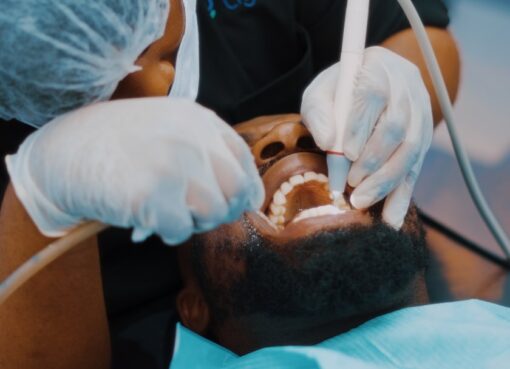Understanding Full Mouth Dental Implants Cost with Insurance

Full mouth dental implants, also known as full arch dental implants, are a comprehensive solution for individuals who have lost all or most of their teeth. This procedure involves the placement of dental implants throughout the entire upper or lower jaw, or both, to support a full set of replacement teeth. Unlike traditional dentures, full mouth dental implants are fixed in place and function much like natural teeth. The implants are surgically placed into the jawbone, where they fuse with the bone over time, providing a stable foundation for the replacement teeth. This not only restores the ability to eat and speak with confidence but also helps to maintain the structure of the jawbone, preventing further bone loss.
Full mouth dental implants are typically recommended for individuals who have experienced significant tooth loss due to decay, gum disease, trauma, or other factors. They offer a long-term solution that can significantly improve the quality of life for those who have struggled with the challenges of missing teeth. The process of getting full mouth dental implants involves a thorough evaluation by a dental professional, including X-rays and impressions of the mouth. Once the treatment plan is established, the implants are surgically placed, and a temporary set of teeth may be attached while the implants heal and integrate with the jawbone. Once the healing process is complete, a permanent set of replacement teeth is custom-made and attached to the implants, providing a natural-looking and functional smile.
Full mouth dental implants are a life-changing solution for individuals who have lost most or all of their teeth. They offer a permanent and natural-looking alternative to traditional dentures, providing improved oral function and aesthetics. The process involves the surgical placement of dental implants throughout the entire upper or lower jaw, or both, to support a full set of replacement teeth. This comprehensive solution not only restores the ability to eat and speak with confidence but also helps to maintain the structure of the jawbone, preventing further bone loss. Full mouth dental implants are recommended for individuals who have experienced significant tooth loss due to various factors and offer a long-term solution that can significantly improve the quality of life for those who have struggled with the challenges of missing teeth. The process involves a thorough evaluation by a dental professional, including X-rays and impressions of the mouth, followed by the surgical placement of the implants and the attachment of temporary and permanent replacement teeth.
Key Takeaways
- Full mouth dental implants involve replacing all of a person’s teeth with implants and prosthetic teeth
- The cost of full mouth dental implants without insurance can range from ,000 to ,000 or more
- Dental insurance can help cover the cost of full mouth dental implants, but coverage varies widely
- Understanding the coverage and limitations of dental insurance for implants is important for managing expectations
- Additional costs to consider when getting full mouth dental implants include pre-surgery procedures, post-surgery care, and potential complications
- Tips for navigating the insurance process for full mouth dental implants include researching coverage options and communicating with the insurance provider
- Alternatives to traditional dental insurance for covering the cost of implants may include dental discount plans or medical tourism
The cost of full mouth dental implants without insurance
The cost of full mouth dental implants can vary depending on several factors, including the number of implants needed, the type of replacement teeth used, and any additional procedures required. On average, the cost of full mouth dental implants without insurance can range from $20,000 to $45,000 per arch. This cost includes the surgical placement of the implants, any necessary bone grafting or sinus lifts, the fabrication of replacement teeth, and follow-up appointments. Keep in mind that this is an estimate, and the actual cost may be higher or lower based on individual circumstances.
The cost of full mouth dental implants without insurance can be a significant investment, but it’s important to consider the long-term benefits and improved quality of life that this comprehensive solution provides. While the initial cost may seem high, full mouth dental implants offer a permanent and natural-looking alternative to traditional dentures, providing improved oral function and aesthetics. Additionally, many dental providers offer financing options to help make the cost more manageable for patients. It’s essential to discuss all available payment options with your dental provider to find a solution that fits your budget.
The cost of full mouth dental implants without insurance can vary based on several factors, including the number of implants needed, the type of replacement teeth used, and any additional procedures required. On average, the cost can range from $20,000 to $45,000 per arch, which includes the surgical placement of the implants, any necessary bone grafting or sinus lifts, the fabrication of replacement teeth, and follow-up appointments. While this may seem like a significant investment, it’s important to consider the long-term benefits and improved quality of life that full mouth dental implants provide. Many dental providers offer financing options to help make the cost more manageable for patients, so it’s essential to discuss all available payment options with your provider.
How insurance can help cover the cost of full mouth dental implants
While traditional dental insurance may not cover the full cost of dental implants, some plans offer partial coverage for certain aspects of the procedure. For example, some plans may cover a portion of the surgical placement of the implants or provide benefits for the fabrication of replacement teeth. It’s essential to review your insurance policy carefully and speak with your provider to understand what aspects of full mouth dental implants may be covered.
In addition to traditional dental insurance, some individuals may have medical insurance that provides coverage for certain aspects of full mouth dental implants. For example, if bone grafting or sinus lifts are necessary as part of the implant process, these procedures may be covered under medical insurance if they are deemed medically necessary. It’s important to check with both your dental and medical insurance providers to understand what benefits may be available to help cover the cost of full mouth dental implants.
While traditional dental insurance may not cover the full cost of dental implants, some plans offer partial coverage for certain aspects of the procedure. For example, some plans may cover a portion of the surgical placement of the implants or provide benefits for the fabrication of replacement teeth. It’s essential to review your insurance policy carefully and speak with your provider to understand what aspects of full mouth dental implants may be covered. Additionally, some individuals may have medical insurance that provides coverage for certain aspects of full mouth dental implants if they are deemed medically necessary. It’s important to check with both your dental and medical insurance providers to understand what benefits may be available to help cover the cost.
Understanding the coverage and limitations of dental insurance for implants
| Insurance Provider | Coverage for Implants | Limitations |
|---|---|---|
| Provider A | Partial coverage for implants | Excludes coverage for certain types of implants |
| Provider B | Full coverage for implants | Requires pre-authorization and waiting period |
| Provider C | No coverage for implants | May offer discount plans for implant procedures |
When it comes to dental insurance coverage for implants, it’s essential to understand that most traditional plans have limitations and exclusions when it comes to this type of procedure. While some plans may offer partial coverage for certain aspects of full mouth dental implants, such as surgical placement or replacement teeth, it’s rare for insurance to cover the entire cost. Additionally, many plans have waiting periods before coverage for major procedures like implants becomes available.
It’s important to carefully review your insurance policy and speak with your provider to understand what aspects of full mouth dental implants may be covered and what limitations or exclusions may apply. Some plans may have annual maximums or lifetime limits on coverage for major procedures like implants, so it’s crucial to be aware of these limitations when considering treatment options. Additionally, some plans may require pre-authorization or documentation from your dental provider before coverage for implants can be approved.
When it comes to dental insurance coverage for implants, it’s important to understand that most traditional plans have limitations and exclusions when it comes to this type of procedure. While some plans may offer partial coverage for certain aspects of full mouth dental implants, such as surgical placement or replacement teeth, it’s rare for insurance to cover the entire cost. Many plans also have waiting periods before coverage for major procedures like implants becomes available. It’s crucial to carefully review your insurance policy and speak with your provider to understand what aspects of full mouth dental implants may be covered and what limitations or exclusions may apply.
Additional costs to consider when getting full mouth dental implants
In addition to the cost of surgical placement and replacement teeth, there are several additional costs to consider when getting full mouth dental implants. These may include pre-operative procedures such as X-rays and impressions, as well as any necessary bone grafting or sinus lifts to prepare the jawbone for implant placement. Follow-up appointments for adjustments and maintenance are also an important consideration.
It’s essential to discuss all potential costs with your dental provider before undergoing treatment to ensure that you have a comprehensive understanding of the financial investment involved in full mouth dental implants. Additionally, some individuals may incur travel expenses if they need to visit a specialist for certain aspects of their implant treatment. Being aware of these potential additional costs can help you plan accordingly and make informed decisions about your treatment options.
In addition to the cost of surgical placement and replacement teeth, there are several additional costs to consider when getting full mouth dental implants. These may include pre-operative procedures such as X-rays and impressions, as well as any necessary bone grafting or sinus lifts to prepare the jawbone for implant placement. Follow-up appointments for adjustments and maintenance are also an important consideration. It’s essential to discuss all potential costs with your dental provider before undergoing treatment to ensure that you have a comprehensive understanding of the financial investment involved in full mouth dental implants.
Tips for navigating the insurance process for full mouth dental implants

Navigating the insurance process for full mouth dental implants can be complex, but there are several tips that can help make it more manageable. First and foremost, it’s essential to thoroughly review your insurance policy and speak with your provider to understand what aspects of implant treatment may be covered and what limitations or exclusions may apply. Additionally, it’s important to work closely with your dental provider to obtain any necessary pre-authorization or documentation required by your insurance plan.
If you have medical insurance that may provide coverage for certain aspects of implant treatment, it’s crucial to communicate effectively with both your dental and medical insurance providers to ensure that you maximize your benefits. Finally, if you encounter any challenges or denials during the insurance process, don’t hesitate to advocate for yourself and appeal any decisions that you believe are unjustified.
Navigating the insurance process for full mouth dental implants can be complex, but there are several tips that can help make it more manageable. Thoroughly reviewing your insurance policy and speaking with your provider is essential to understand what aspects of implant treatment may be covered and what limitations or exclusions may apply. Working closely with your dental provider to obtain any necessary pre-authorization or documentation required by your insurance plan is also crucial. If you have medical insurance that may provide coverage for certain aspects of implant treatment, effective communication with both your dental and medical insurance providers is essential to maximize your benefits.
Alternatives to traditional dental insurance for covering the cost of implants
For individuals who do not have traditional dental insurance or who are seeking additional financial assistance for implant treatment, there are alternative options available. Some individuals may choose to enroll in a dental discount plan, which offers reduced fees for various dental procedures including implants. These plans typically involve an annual membership fee in exchange for discounted rates at participating providers.
Another alternative option is seeking financing through third-party lenders or healthcare credit companies that specialize in providing funds specifically for medical and dental expenses. These lenders offer flexible payment plans with low-interest rates that can help make the cost of full mouth dental implants more manageable over time.
For individuals who do not have traditional dental insurance or who are seeking additional financial assistance for implant treatment, there are alternative options available. Enrolling in a dental discount plan can provide reduced fees for various dental procedures including implants in exchange for an annual membership fee at participating providers. Seeking financing through third-party lenders or healthcare credit companies that specialize in providing funds specifically for medical and dental expenses is another alternative option. These lenders offer flexible payment plans with low-interest rates that can help make the cost of full mouth dental implants more manageable over time.
Additionally, some dental offices may offer in-house financing options for implant treatment, allowing patients to make affordable monthly payments directly to the practice. It is important for individuals to explore all available options and discuss their financial concerns with their dental provider to find the best solution for their specific needs. With the availability of alternative options, individuals can still receive the necessary dental care, such as full mouth dental implants, without the burden of high upfront costs.
If you’re considering full mouth dental implants and want to know the cost with insurance, you may also be interested in learning about the importance of nutrition for oral health. Nutribalance360 offers valuable insights into how a balanced diet can support overall dental health and potentially reduce the need for extensive dental work. Check out their article on the topic here.
FAQs
What are full mouth dental implants?
Full mouth dental implants are a permanent solution for replacing all of the teeth in a patient’s mouth. This procedure involves surgically placing dental implants into the jawbone, which act as anchors for the replacement teeth.
What is the cost of full mouth dental implants?
The cost of full mouth dental implants can vary depending on several factors, including the number of implants needed, the type of implants used, the location of the dental practice, and any additional procedures required. On average, the cost can range from $20,000 to $45,000 per arch.
Does insurance cover the cost of full mouth dental implants?
In most cases, dental insurance does not fully cover the cost of full mouth dental implants. However, some insurance plans may cover a portion of the cost, such as the initial consultation or certain aspects of the procedure. It’s important to check with your insurance provider to understand what is covered.
Are there any financing options available for full mouth dental implants?
Many dental practices offer financing options to help patients cover the cost of full mouth dental implants. This may include payment plans, medical credit cards, or financing through a third-party provider. It’s important to discuss these options with your dental provider.
What are the benefits of full mouth dental implants?
Full mouth dental implants offer several benefits, including improved oral health, restored ability to eat and speak, enhanced appearance, and increased confidence. Additionally, they are a long-term solution that can last a lifetime with proper care.
Leave a Reply
You must be logged in to post a comment.



Leave a Comment